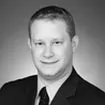This is the second in a series of articles discussing recent orders of interest issued in patent cases by the United States District Court for the District of Massachusetts.
In Inline Plastics Corp. v. Lacerta Group, Inc., No. 4:18-cv-11631-TSH, Judge Hillman issued a short electronic order on January 27, granting-in-part and denying-in-part Plaintiff's motion in limine to preclude expert testimony on obviousness. Judge Hillman granted Plaintiff's motion as to testimony on secondary considerations but denied the motion as to the ultimate question of obviousness.
Inline moved in limine to preclude Defendant Lacerta from introducing at trial expert opinion or other evidence on (1) secondary considerations of non-obviousness, and (2) the ultimate question of obviousness. Inline alleged that Lacerta had failed to include any expert opinion or evidence regarding secondary considerations and, as a result, Lacerta's expert's ultimate opinion on obviousness was incomplete and unreliable.
The Court found that Lacerta had not advanced any opinions or evidence regarding secondary considerations of non-obviousness and, as a result, Lacerta's expert could not provide testimony on any such indicia. The Court also found, however, that the expert's "failure to include an opinion on secondary considerations of non-obviousness in his expert report does not preclude him from opining on the ultimate question of obviousness at trial." The Court acknowledged that "[w]here an 'expert purports to testify . . . to the ultimate question of obviousness, the expert must consider all factors relevant to that ultimate question.'" InTouch Technologies, Inc. v. VGO Communications, Inc., 751 F.3d 1327, 1352 n.8 (Fed. Cir. 2014). Judge Hillman noted, however, that "at his deposition, [Defendant Lacerta's expert] Dr. MacLean testified that he reviewed 'some documents and some information' concerning secondary considerations of non-obviousness, but that his report was silent on such considerations because he found them unpersuasive."
As a result, the Court found that because Lacerta's expert "considered secondary considerations of non-obviousness in forming his opinion on the ultimate question of obviousness, [he] may offer his opinion on that ultimate question at trial."
The content of this article is intended to provide a general guide to the subject matter. Specialist advice should be sought about your specific circumstances.


